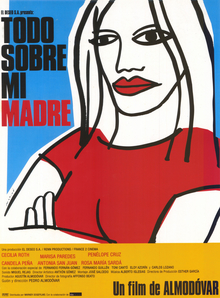 To be honest, I've been in a crummy mood lately. There are a lot of reasons why, but I'm afraid if I use this post to list all the reasons, it is just going to reinforce the grumpiness. So instead, I'm going to explore the connection between emotions and chronic illness, because I think being chronically ill can definitely mess with your emotions.
To be honest, I've been in a crummy mood lately. There are a lot of reasons why, but I'm afraid if I use this post to list all the reasons, it is just going to reinforce the grumpiness. So instead, I'm going to explore the connection between emotions and chronic illness, because I think being chronically ill can definitely mess with your emotions.The Challenges of Chronic Illness
Let's start by looking at the daily challenges of living with chronic illness. I think it comes down to seven main sources:
- the physical challenges that come from living in a body that doesn't working properly anymore
- the reduced physical and/or mental capabilities that are the direct result of being ill
- the stress and fatigue of living with it day-in and day-out
- the need to adapt to fluctuating health status and changing medical care
- all the financial challenges, like huge medical bills and a reduced income potential
- the repercussions on relationships with family and friends due to the above challenges
- the impact living with chronic illness has on your self-image and self-worth
Some days I cope better; others days not so much. That's when I use all the strategies at my disposal, like:
- having fun every day
- snuggling with my pets
- getting lost in a good book, movie or TV show
- heading out to my container garden
- dabbling in arts and crafts
- getting hugs and a kisses from my husband
- connecting with others--especially others living with chronic illness too
The truth is I'd love to just get well. Or just get Zen enough to rise above my problems to a place where they don't touch me. Even a brief vacation from my troubles would be nice. Too bad none of these things are truly possible.
So I muddle through and do the best I can do, which I know sounds cliché, but then really, what other choice do I have if I want to still get some good things our of life?
An Avalanche of Emotions
No matter how well I cope, I am still faced with living a life filled with daily challenges. At times, life with chronic illness can be very stressful and full of tension, fear and uncertainty. Living under this constant burden, a few emotions are bound to come up!
Some of the ones I've become very familiar with are:
- helplessness
- frustration
- loneliness
- hopelessness
- sadness
- resentment
- irritability
- anger
Most people would say these are "negative" emotions or feelings. Personally, I don't like to label them this way because it makes harder for me to deal with them. What serves me best is to acknowledge that all emotions need to be felt and experienced in the moment to make room for the other emotions that will come after them.
In other words, you won't be able to feel the "good" stuff if you avoid feeling the "bad" stuff.
An Increased Vulnerability to Stress
Adding insult to injury, I know many of us live with chronic pain and fatigue conditions that affect how our brains and nervous systems function. Or should I say malfunction. Our chronic illnesses mess with our bodies' ability to regulate bodily functions like our hormones, neurotransmitters, immune response and sleep cycles.
In short, chronic illness makes us physically more susceptible to the adverse effects of stress.
I know when I get excited about something good happening or get worried about something bad, my body takes those impulses and completely blows them out of proportion. My wonky nervous system gets thrown into the fight-or-flight response: my heart rate goes up, I get revved up, I'm jumpy, my muscles are more tense, my stomach is upset and I have more problems sleeping. While I can understand this kind of physical response in reaction to worry and stress, I am still taken aback when this happens as the result of hearing good news or anticipating something fun happening. I mean, how strange is that?!?
Even with the use my coping tool box filled with reassuring self-talk, meditation, use of my emWave and distraction, my body doesn't always calm down. Sometimes I am forced to just ride it out until the event, feelings or circumstance that trigger the response pass. In the meantime, I take even better care of myself with more schedule rest, fewer strenuous activities and more time in quiet, calming surroundings.
Rising to the Challenge
As you can see, chronic illness impacts a person physically, mentally, emotionally, spiritually, socially and financially.
It presents a constant stream of daily challenges. It keeps me on my toes, pushing me to learn, grown, change and adapt as I do my best to cope. It is the source of my bad pain and fatigue days, many unpleasant feelings and my occasional melancholy.
But I do my best to fight back most days, finding the small comforts and pleasures I can still enjoy that connect me to what life still has to offer me despite chronic illness.
But not today. Today I'm feeling the yucky stuff so I can get to the happy stuff that is just around the corner.
So does chronic illness mess with your emotions too? Leave me a comment and share your experiences with me and your fellow readers.
Related articles
















![Reblog this post [with Zemanta]](http://img.zemanta.com/reblog_b.png?x-id=04bdaf44-9a75-474a-a188-a2c17969bab6)


![Reblog this post [with Zemanta]](http://img.zemanta.com/reblog_b.png?x-id=e41a9773-1e77-45e0-9097-a07f04723092)


![Reblog this post [with Zemanta]](http://img.zemanta.com/reblog_b.png?x-id=7f064e4b-8585-4613-b5d8-05792d21b5c0)